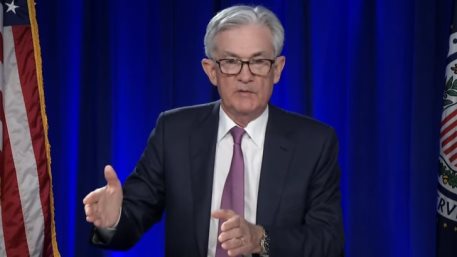
In 1955, the battered face of 14-yer old Emmett Till, an African American boy who was lynched in Mississippi for allegedly whistling at a white woman, caused a wave of massive protests across the United States, which fuelled the national movement for social justice and racial equality. The newspaper images of his dead body shocked America and exacerbated people's anger with the deeply-rooted judicial and cultural issues that divided America at that time.
Not shortly afterwards, a simple act of defiance by one Rosa Parks and the momentous "I have a dream" speech by Dr Martin Luther King Jr. further drew public attention to the struggles of 'Black America'.
Despite all of the progress that has been made since the 1950s however, the underlying issues persist. Almost 30 years after the infamous beating of Rodney King by the LAPD, the recent murder of George Floyd in Minneapolis by a policeman, who pressed Floyd's face against the pavement with his knee until he suffocated, sparked renewed agitation in the public sphere. People have taken to the streets to protest the seemingly unrelenting vicious cycle of police brutality, which is accompanied by the suppression of African American's rights. Apparently, history tends to repeat itself, while matters of racial inequality and abuse of authority on the part of the US police forces seem to remain.
We are seeing massive levels of civil unrest in the streets of major US cities, as peaceful protests turn into heated riots accompanied by looting. The public anger, it seems, is also exacerbated by the recently eased situation in the States, following the termination of the national lockdown from the coronavirus epidemic. This boiling keg is additionally fuelled by the rising unemployment rate stemming from the COVID-19 fallout.
It is feared that amidst this brewing sea of public discontent, which has been catalysed by George Floyd's murder, the underlying issues concerning matters of social equality could be brushed aside under the rug because of the volatile and eventful present times. Yet, something is different. Unlike, say, the Rodney King case in the early 1990s, the appalling behaviour of the police officer responsible for the killing of Floyd has triggered a tidal wave of condemnations not only in the US but across the world as well.
People from Brussels to Sydney have also taken to the streets in a series of peaceful protests to express their support for the 'Black Lives Matter' movement. The unprecedented in scale global outcry against the outrageous act is already pressuring the US to implement a societal reform at a level that still cannot be fully comprehended. National and international calls for change could be enough to prompt a more decisive discourse in the US on racial equality. Nevertheless, if significant progress is to be genuinely made, then the US needs to make drastic changes.
While there is no single decision that could completely eradicate the historical baggage to American society from centuries of racial tensions, there is one definitive step that would undoubtedly help improve the current situation quite substantially. That would be the abolishment of the 2nd Amendment of the Constitution.
While it is true that in the case of George Floyd's murder guns did not play any part, one should not forget the many other instances of mass shootings in schools, churches and across the public sphere, which are heavily connected to America's bad relationship with guns control. I shall abstain from delving into the historical context of the 2nd Amendment and the freedom it invokes for US citizens to bear Arms. However, I shall underline the practical advantage of restricting the easy access of deadly weapons to a public, which continues to be plagued by social divisions. It should be apparent to all that the abundance of firearms coupled with racial tensions and other societal rifts, represent the necessary ingredients to spell disaster in the future.
There is, however, another subtler benefit to abolishing the 2nd Amendment. That would be the invalidation of the false sense of entitlement that so many naturally confrontational people seem to develop after they obtain their guns. While at its core, the 2nd Amendment was intended to grant Americans with the means to protect themselves against foreign rule, the context of the American society has changed drastically since America's colonial days. At present, the Amendment seems to enforce people to seek conflict rather than to protect their liberty. With no British invasion to fight off at the home front, the 2nd is more of a burden to social cohesion as opposed to its primary role as a pillar of freedom and liberty.




















